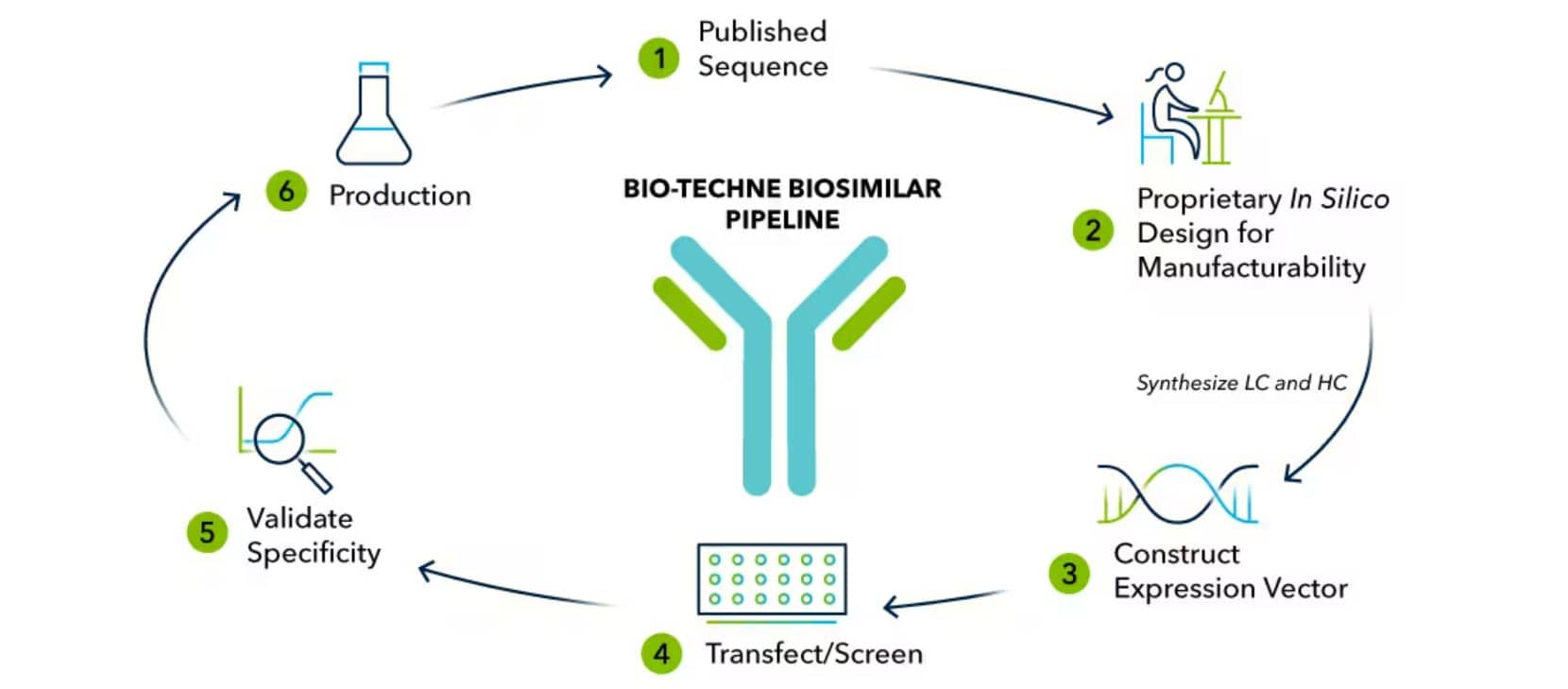Human IFN-beta Antibody Summary
Met22-Asn187
Accession # P01574
Customers also Viewed
Applications
Please Note: Optimal dilutions should be determined by each laboratory for each application. General Protocols are available in the Technical Information section on our website.
Scientific Data
 View Larger
View Larger
IFN‑ beta in Human Breast. IFN-beta was detected in immersion fixed paraffin-embedded sections of human breast using Mouse Anti-Human IFN-beta Monoclonal Antibody (Catalog # MAB8145) at 5 µg/mL for 1 hour at room temperature followed by incubation with the Anti-Mouse IgG VisUCyte™ HRP Polymer Antibody (Catalog # VC001). Before incubation with the primary antibody, tissue was subjected to heat-induced epitope retrieval using Antigen Retrieval Reagent-Basic (Catalog # CTS013). Tissue was stained using DAB (brown) and counterstained with hematoxylin (blue). Specific staining was localized to cytoplasm in ductal cells. View our protocol for IHC Staining with VisUCyte HRP Polymer Detection Reagents.
Preparation and Storage
- 12 months from date of receipt, -20 to -70 °C as supplied.
- 1 month, 2 to 8 °C under sterile conditions after reconstitution.
- 6 months, -20 to -70 °C under sterile conditions after reconstitution.
Background: IFN-beta
Interferon beta (IFN-beta ), also known as fibroblast IFN, is a secreted, approximately 22 kDa member of the type I interferon family of molecules (1). Mature human IFN-beta shares 47% and 46% amino acid sequence identity with the mouse and rat proteins, respectively. Fibroblasts are the major producers of IFN-beta, but it can also be produced by dendritic cells, macrophages, and endothelial cells in response to pathogen exposure (2). It is transcriptionally regulated by TRAF3, IRF3, IRF7, and NF-kappa B (3, 4). Following secretion, IFN-beta signals through the heterodimeric IFN-alpha / beta Receptor and activates the JAK/STAT signaling pathway (5-8). IFN-beta -deficient mice show increased susceptibility to experimental autoimmune encephalomyelitis (EAE), a disease model of human multiple sclerosis (MS) (9). Furthermore, IFN-beta has been shown to suppress the Th17 cell response in both MS and EAE and has commonly been used as a treatment for MS (10-14).
- González-Navajas, J.M. et al. (2012) Nat. Rev. Immunol. 12:125.
- Reder, A.T. and X. Feng (2013) Front. Immunol. 4:281.
- Schafer, S.L. et al. (1998) J. Biol. Chem. 273:2714.
- Häcker, H. et al. (2006) Nature 439:204.
- Honda, K. et al. (2006) Nat. Rev. Immunol. 6:644.
- Platanias, L.C. (2005) Nat. Rev. Immunol. 5:375.
- Fasler-Kan, E. et al. (1998) Eur. J. Biochem. 254:514.
- Matikainen, S. et al. (1999) Blood 93:1980.
- Teige, I. et al. (2003) J. Immunol. 170:4776.
- Shinohara, M.L. et al. (2008) Immunity 29:68.
- Guo, B. et al. (2008) J. Clin. Invest. 118:1680.
- Ramgolam, V.S. and S. Markovic-Plese (2010) Endocr. Metab. Immune Disord. Drug Targets 10:161.
- Martín-Saavedra, F.M. et al. (2008) Mol. Immunol. 45:4008.
- Inoue, M. and M.L. Shinohara (2013) Immunology 139:11.
Product Datasheets
Citation for Human IFN-beta Antibody
R&D Systems personnel manually curate a database that contains references using R&D Systems products. The data collected includes not only links to publications in PubMed, but also provides information about sample types, species, and experimental conditions.
1 Citation: Showing 1 - 1
-
The Defenders of the Alveolus Succumb in COVID-19 Pneumonia to SARS-CoV-2, Necroptosis, Pyroptosis and Panoptosis
Authors: Schifanella L, Anderson J, Wieking G et al.
bioRxiv : the preprint server for biology
FAQs
No product specific FAQs exist for this product, however you may
View all Antibody FAQsIsotype Controls
Reconstitution Buffers
Secondary Antibodies
Reviews for Human IFN-beta Antibody
There are currently no reviews for this product. Be the first to review Human IFN-beta Antibody and earn rewards!
Have you used Human IFN-beta Antibody?
Submit a review and receive an Amazon gift card.
$25/€18/£15/$25CAN/¥75 Yuan/¥2500 Yen for a review with an image
$10/€7/£6/$10 CAD/¥70 Yuan/¥1110 Yen for a review without an image











